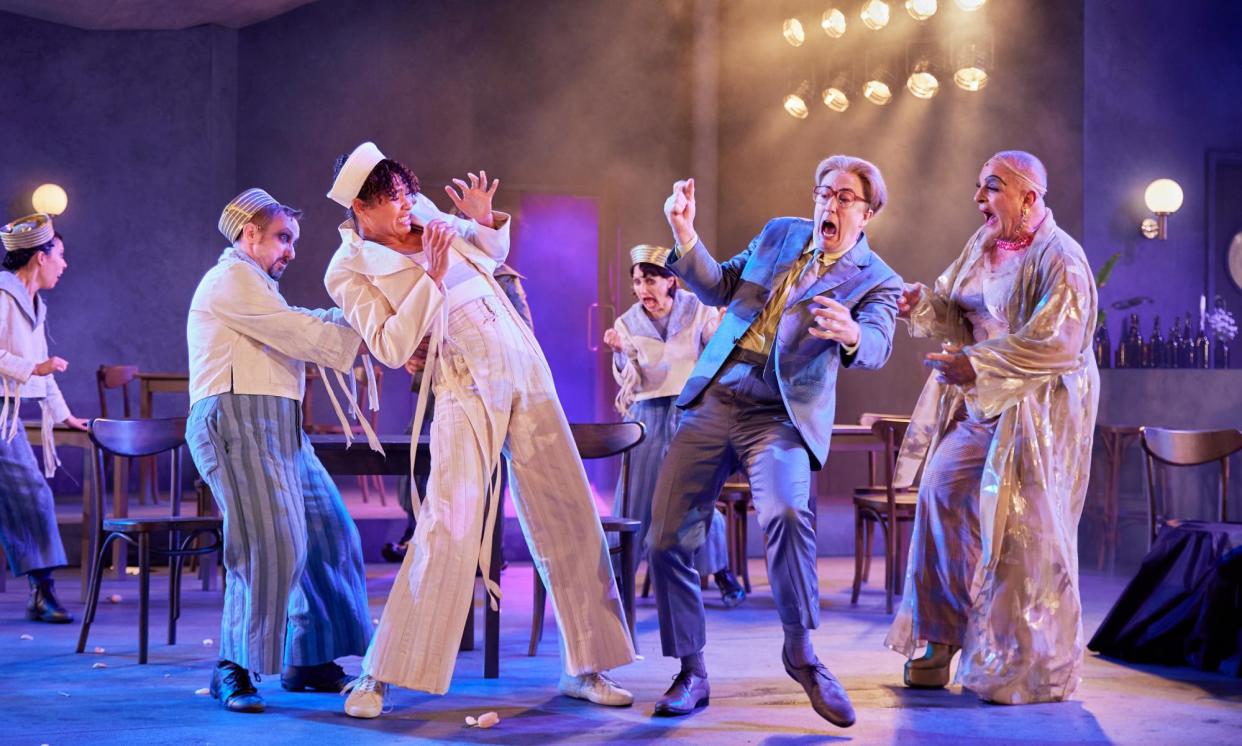Twelfth Night review – splashes of fun beside the seaside

Tonight belongs to the lovers, but not the ones you might expect. “What are you? What would you?” asks Olivia (Anna Francolini), pointing at Viola (Evelyn Miller), her questions cynical, challenging. Much of the night’s events hinge on the younger woman’s answer.
The stage is full of music and mischief, but nothing else reaches the intensity or clarity of Olivia and Viola’s scenes in this light, frolicking production by Owen Horsley. On Basia Bińkowska’s open, ocean-blue set, the cast sprawls across Olivia’s, a seaside bar with its extravagant owner’s name up in lights. The set provides a neutral space for the cast to roll in and out of, but the wider world feels undefined; the band of sailors who offer gentle accompaniment with Sam Kenyon’s jaunty music, and who double as Orsino’s court, feel unmoored within scenes, not given enough individual character to be more than spare parts.
There is much to delight in. Ryan Dawson Laight’s sumptuous costumes shine and Michael Matus gives a glorious turn in drag as Toby Belch, a bully towards Richard Cant’s proud Malvolio, who doesn’t deserve the level of cruelty set upon him. The physical comedy works decently with the bumbling Andrew Aguecheek (Matthew Spencer) and the sneaky Maria (Anita Reynolds), but the larger set pieces long to be pushed further, to find a hiding place more inventive than behind a table.
As the sun goes down, Aideen Malone’s lighting streams through the trees. Queerness is forefronted in this production, but not quite maintained. It feels almost unfaithful when Viola ends up with Orsino, as their chemistry has been far more fleeting. Did she not hear the saxophone-cradled power ballad Olivia belted towards her? Antonio gets a tough deal too, as his lover – how easily Shakespeare’s words let two men love – hasn’t been gone five minutes before he shacks up with someone else.
It’s Francolini’s Olivia who conveys the emotional impact of the play’s events. In a delicate scene, she walks across the stage, now empty of lovers, to take a seat alone. In the set of her shoulders, we see a glimpse of the grief that roils beneath the play, as she pieces her broken heart back together once more.
At Regent’s Park Open Air theatre, London, until 8 June


